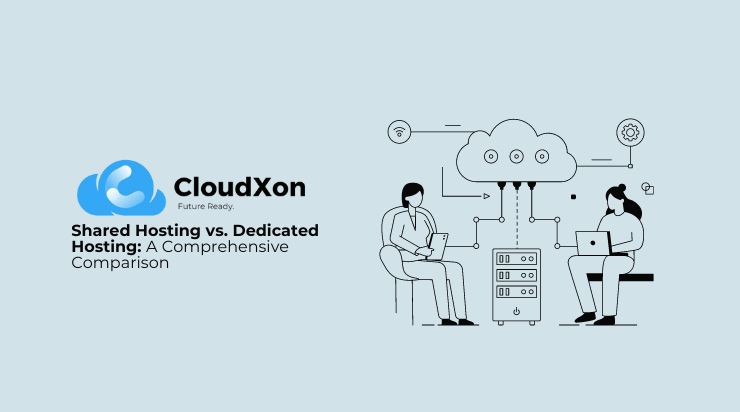In the world of web hosting, shared hosting and dedicated hosting are two popular options, each offering unique benefits and functionalities. Understanding the differences between the two is crucial for making the right choice based on your website’s requirements. Let’s dive into a detailed comparison of shared hosting and dedicated hosting to help you determine which is better suited for your needs.
Criteria | Shared Hosting | Dedicated Hosting |
|---|---|---|
Server Resources | Shared among multiple websites | Dedicated solely to one website |
Performance | Limited by server load and traffic spikes | Higher cost due to exclusive use of resources |
Cost | Affordable with shared resources | Upfront investment, ongoing costs |
Scalability | Limited scalability options | Easily scalable to accommodate growth |
Security | Shared security measures | Enhanced security with dedicated resources |
Control and Customization | Limited control and customization options | Full control and customization capabilities |
Technical Support | Standard support services | Priority support and dedicated assistance |
Uptime | Dependence on server stability | High uptime guarantee with dedicated hosting |
Server Resources (Shared Hosting vs. Dedicated Hosting):
Shared hosting involves sharing server resources (CPU, RAM, storage) with multiple websites, which can lead to performance issues during high traffic periods. On the other hand, dedicated hosting provides exclusive access to server resources, ensuring consistent performance.
Performance:
Shared hosting performance can be affected by other websites sharing the same server, resulting in slower loading times and response rates. Dedicated hosting offers superior performance, especially for resource-intensive websites, as it eliminates resource sharing.
Cost:
Shared hosting is more cost-effective as the server resources are shared among multiple users, reducing individual costs. In contrast, dedicated hosting is pricier due to the exclusive use of server resources and higher performance guarantees.
Control and Customization:
Shared hosting providers limit control and customization options to ensure server stability and security for all users. Dedicated hosting offers full control over server configurations, software installations, and customization according to specific requirements.
Security:
Shared hosting relies on shared security measures, making it vulnerable to security breaches if one website is compromised. Dedicated hosting provides enhanced security with dedicated resources, firewalls, and intrusion detection systems.
Scalability:
Shared hosting has limited scalability options, making it challenging to accommodate sudden spikes in website traffic or resource demands. Dedicated hosting offers easy scalability by upgrading server resources as needed, ensuring seamless growth.
Technical Support:
Shared hosting typically provides standard technical support services, while dedicated hosting offers priority support with dedicated assistance from experienced technicians.
Uptime:
Shared hosting uptime depends on server stability and the activities of other users on the server. Dedicated hosting ensures high uptime with dedicated resources, minimal downtime, and reliable performance.
Conclusion:
Both shared hosting and dedicated hosting have their pros and cons, making them suitable for different website needs. Shared hosting is ideal for small to medium-sized websites with budget constraints and moderate traffic. In contrast, dedicated hosting is recommended for high-traffic websites, resource-intensive applications, and businesses that require maximum control, customization, and security.
Discover Your Ideal Hosting Solution with CloudXon
Ready to choose your hosting plan? Contact us today to discuss your hosting requirements and find the perfect solution for your website.




